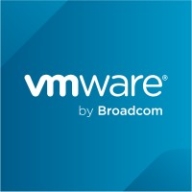

Pulseway and VMware vCenter cater to IT management needs. Pulseway seems to have the upper hand due to its cost-effectiveness and strong customer support, whereas VMware vCenter impresses with its comprehensive feature set despite its higher price and complexity.
Features: Pulseway offers remote monitoring and management tools, mobile accessibility, and simplified automation features for smaller IT environments. VMware vCenter provides extensive virtualization capabilities, advanced resource management, and robust data protection, making it suitable for extensive IT infrastructures.
Room for Improvement: Pulseway could improve its reporting capabilities, deeper integration with third-party tools, and advanced analytics. VMware vCenter users seek a less steep learning curve, a faster interface, and smoother integration processes. Both products require enhancements in specific areas to improve user satisfaction.
Ease of Deployment and Customer Service: Pulseway offers straightforward deployment with a user-friendly setup and superior customer support. VMware vCenter has a powerful deployment model but involves a complex setup process and mixed customer service reviews.
Pricing and ROI: Pulseway is noted for its lower setup costs and quicker time to ROI, favored by budget-conscious users. VMware vCenter, although it has higher upfront costs, delivers long-term value through its extensive features and enterprise-level capabilities.
| Product | Market Share (%) |
|---|---|
| VMware vCenter | 1.0% |
| Pulseway | 0.6% |
| Other | 98.4% |


| Company Size | Count |
|---|---|
| Small Business | 15 |
| Midsize Enterprise | 5 |
| Large Enterprise | 18 |
Pulseway is a remote monitoring and management (RMM) platform designed to help MSPs and IT teams manage modern IT networks, reduce downtime, and achieve efficiency through automation, while increasing end-user satisfaction.
Pulseway’s intuitive interface provides real-time actionable detailed information on servers, workstations, and network devices. Using Pulseway’s customizable alerts, you can quickly identify problems, communicate with users, and automatically resolve issues with built-in commands and scripts.
Some of Pulseway’s benefits and features include:
VMware vCenter provides centralized management for virtual machines, offering enhanced resource control, high availability, and data protection. Its integration with NSX and vSAN simplifies infrastructure management, although improvements in pricing, licensing, and technical support are needed.
VMware vCenter streamlines the management of virtual infrastructures, facilitating scalability and elasticity through features like DRS, vMotion, and snapshot capabilities. While users appreciate its centralized control and extensive integration options, complexities in interface and upgrades are seen as challenges. Issues like fragmented licensing, difficult Fault Tolerance management, and high resource demands have been highlighted, alongside the need for enhanced security, monitoring, and seamless cloud integration. vCenter is widely used in data centers for overseeing large virtual environments, integrating cloud services, and providing infrastructure as a service.
What are the main features of VMware vCenter?
What benefits and ROI should users expect?
Industries such as IT, finance, healthcare, and government deploy VMware vCenter to manage their extensive virtual environments. Users rely on its automation and centralized management capabilities to ensure high performance and uptime in data center operations, often leveraging it to integrate with cloud services.
We monitor all Server Monitoring reviews to prevent fraudulent reviews and keep review quality high. We do not post reviews by company employees or direct competitors. We validate each review for authenticity via cross-reference with LinkedIn, and personal follow-up with the reviewer when necessary.